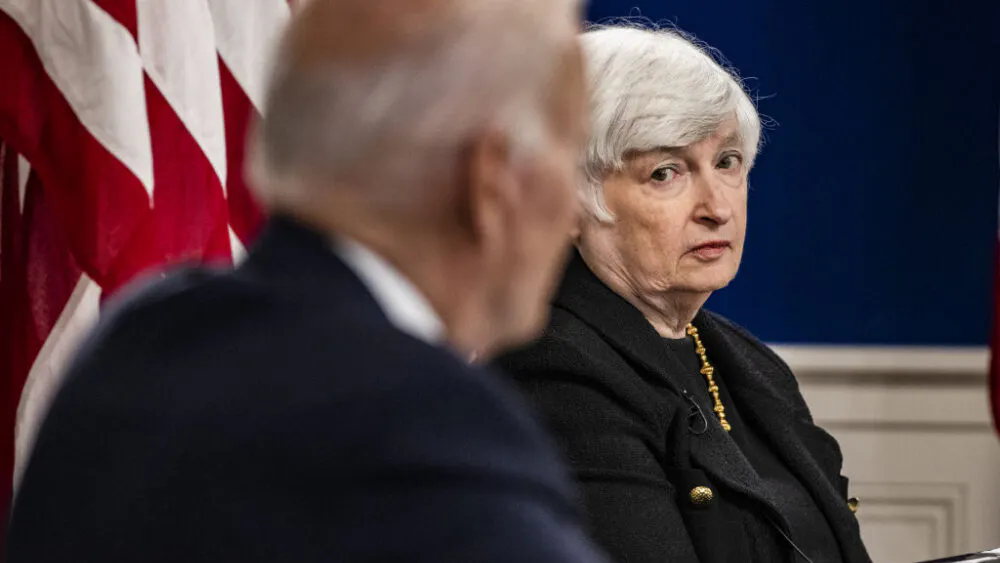Treasury Secretary Janet Yellen vowed that inflation will not reach levels seen in the 1970s.
On Tuesday, the Biden administration official — who also served as Federal Reserve Chair from 2014 to 2018 — touted the “Build Back Better” agenda to Marketplace host Kai Ryssdal.
“Well, I think the economy needs it, and the people need it… It is really intended to address long-standing problems that have been holding this economy back,” she argued. “It’s meant to boost long-term economic growth and to address inequities.”
After Yellen listed various aspects of the program — including universal preschool, child tax credits, new health care programs, and climate change abatements — Ryssdal pointed out the inflationary risks tied to unfettered government spending. “You say this is not a short-run stimulus program. And I wonder if that’s the basis for your belief that this will not be inflationary in this economy? Because as you know, inflation is a big deal right now.”
“Well, inflation has been running at higher levels than we’ve been accustomed to seeing for a long time. And I know that really imposes a burden on households,” Yellen responded before arguing that inflation is “a consequence of recovery from a very severe shock due to the pandemic and something that will work itself out over time.”
Later in the interview, Ryssdal asked simply: “What if you’re wrong?”
Yellen said: “Well, it’s something to be watched carefully. And I know the Federal Reserve is doing that. Monetary policy would have a role to play if this turns out to be something that’s endemic. In the 1970s, we saw supply shocks turn themselves into endemic inflation, wages increased, prices increased as a consequence. We’re not seeing that now. I don’t believe we will. But if that were the case, the Federal Reserve would have a role to play to keep it under control.”
As Yellen referenced, inflation was high in the 1970s under President Carter, eventually exceeding 13.5% in 1980.
On Wednesday, the Department of Labor revealed that year-over-year inflation for consumer prices reached 6.2% in October — the highest rate of increase in three decades. The data was released days after the Federal Reserve announced that it will begin tapering its monthly asset purchases, signaling the first reduction in aggressive monetary stimulus since the onset of COVID-19 and the lockdown-induced recession.
Economists worry that inflation poses a significant risk to economic growth.
“The biggest risk to the global economy may no longer be a renewed downturn because of fresh virus outbreaks, but may now be higher inflation because of tight goods supplies and excessive wage pressure,” said Goldman Sachs analysts in a recent report. “Although we expect a significant part of the goods supply squeeze to abate over the next year, at present the stress on supply chains is substantial and inventories in semiconductors, durable goods, and energy markets are very low. In such an environment, even a moderate production outage resulting from covid outbreaks in China, an energy demand spike related to a cold winter, or other short-term disruptions could have sizable economic effects.”

.png)
.png)

